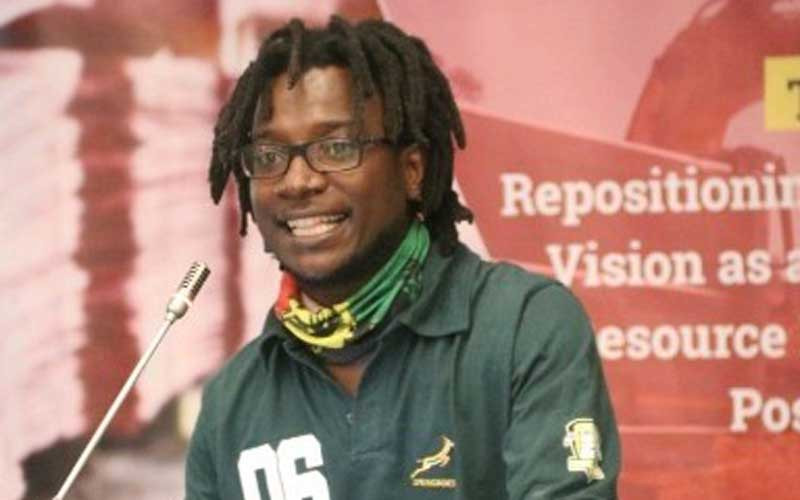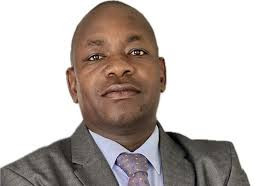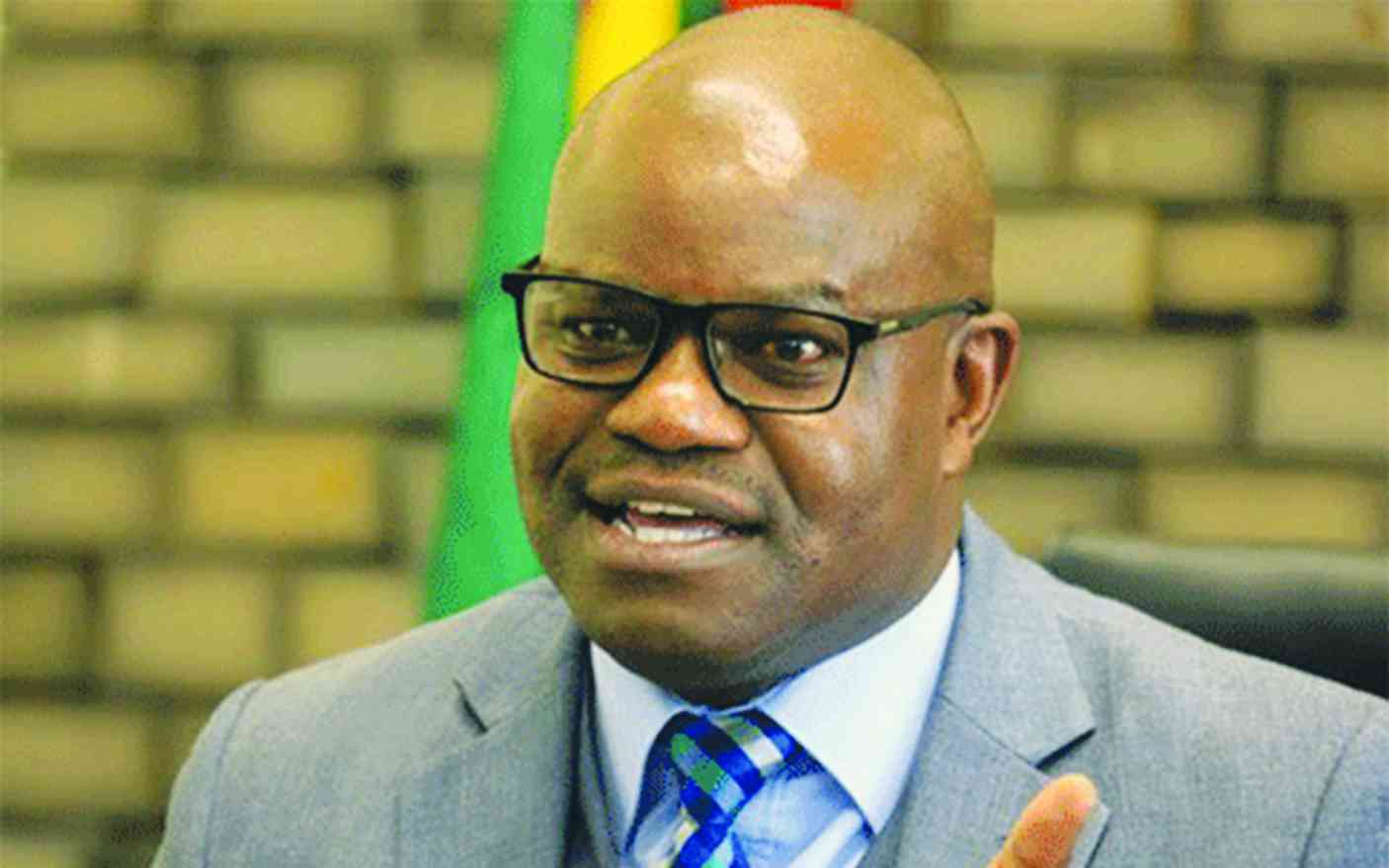
THIS week the Voluntary Media Council of Zimbabwe (VMZC) held a training workshop for journalists on transnational crimes at a time when the country’s economy is at a tipping point. Deliberations at the workshop show that there is a strong link between transnational crime, illicit financial flows and corruption, a situation that has been confronting the Zimbabwean economy for years. Zimbabwe Independent Senior Business reporter Melody Chikono (MC) caught up with former Zimcodd chairperson and Tax and Natural Resource Governance Advisor Mukasiri Sibanda (MS) who said transnational crimes need to be handled from a global perspective through harmonisation of policies. Below are the excerpts from the interview:
MC: Can you share your perspective on transnational crime?
MS: We want to understand the risks we are facing as a country when it comes to transboundary organised crimes or nationally organised crimes. I think those are critical issues that are pertinent in terms of how the state's capability to mobilise domestic resources might be undermined.
I work to stop the bleeding in Africa, so what we focus on are injustices related to trade, investments, debt and taxation. So these are the foundations of domestic resource mobilisation in our view. So if we can curb the leakages as a result then Africa can get a fair chance to mobilise resources internally and be able to substantially finance service delivery to lift its people from the jaws of poverty and inequality. This is a global pandemic when it comes to the risk of transboundary organised crime and illicit financial flaws.
MC: So how should Zimbabwe handle this challenge?
MS: We have to look at it from a global solution approach in terms of how we can be able to go to curb such leakages. But for Zimbabwe to make it easier to move forward, I think we should start with the mining sector, particularly the gold sector.
Zimbabwe is increasingly becoming a mining-dependent country. Before 2000 we talked about gold, after 2000 we added platinum in the mix and towards the end of the decade we started talking about the Marange diamonds and now we are talking about lithium.
So you can see that at each turn of the decade, we get some exciting news that further entrenches the dependency of this country on the mining sector. But if you follow the high-level panel report on illicit financial flows from Africa, led by the former President of South Africa Thabo Bheki, endorsed by the African Union in 2015, it is clear that resource-dependent countries, which Zimbabwe is part of, are highly vulnerable to illicit financial flows.
- The strange tale of China's loans to Zimbabwe
- ‘Govt pampering looters with tax breaks’
- 5 more UZ students arrested
- Child marriage cases spike
Keep Reading
Mainly the drivers are secretive and poorly negotiated contracts that are unequal for Zimbabwe, it hits hard looking at the famous contract that triggered the colonisation of this country, “the Rudd Concession.”
Because of the independence, this is something we need to talk about and also understand the issue of corporate tax dodging. We can also talk about elements that also come from abusive transfer or trade misinvoicing where you inflate the value of goods and services that you import and at the same time deflate the value of goods and services that you export, thereby shifting income.
One thing of interest is artisanal small-scale gold mining. Normally when we report about it, the focus has been on leakages from this country but there has been no focus on the policy framework. So this happens when you look at, for instance, the gold incentive scheme that was there in 2016-2017 and probably part of 2018, it created a risk.
MC: Can you explain the disparity of incentives between the small- and large-scale miners about this?
MS: If you are a large-scale miner you pay US$5 and if you are small-scale you pay a dollar.
There is an incentive there when big volumes are involved like a US$100 million; 5% of a US$100 million gives you US$5 million. So instead of paying US$5 million, you can then channel some of the gold as a small-scale miner with no questions asked and then in the process dodge the tax obligation of US$4 million as an example.
MC: You touched on policies, how best can Zimbabwe handle the policy issue as a means of trying to curb transnational crime?
MS: Before you ask that question, for the gold sector I could go and give you an example of what was covered in South Africa by the South African Revenue Services (SARS) that they lost about US$24,4 billion from 2012 to 2021 through two major companies that were claiming VAT refunds, falsifying the invoices in the process from scrap metal, from scrap gold, from illegal mining and the Kruger rand and possibly this gold was being bought from Zimbabwe.
It was so lucrative in the sense that over and above what is obtained on the international market, you get a 15% refund. When you are looking at the policy framework, we should not only focus on Zimbabwe but understand what is happening in other countries so that we try to harmonise for instance the tax policy framework to make it easier to remove some incentives that are taken advantage of. Not only the tax policy framework but even the trade framework, like incentives for gold delivery, so harmonisation becomes critical.
So we need to work together not only in the Sadc region but also in Africa and globally.
MC: So what then can you say about the relationship between transnational crimes and illicit financial flows?
MS: The relationship is there, but we can also draw a line because when we talk about crime we are talking about criminality and when we talk about illicit, we are talking about unethical but legal for instance the aggressive tax planning taking advantage of the loopholes within the tax system to dribble your way out of your tax obligations.
So this one is unethical but legal, at the same time the impact is the same in the sense that it erodes the government’s capacity to deliver on critical human rights obligations like education and health. Whereas with criminality we are talking about breaking the law.
MC: You have been championing the “stop the bleeding” campaign on an African scale. What is this about and what do you seek to achieve?
MS: There was the realisation that Africa was not going to meet its millennium development goals and part of the problem was a lack of resources to finance development so they wanted to understand why Africa cannot stand on its own when it comes to financing its development. This is when a research paper was produced led by President Mbeki which noted that Africa was losing more than US$50 billion annually through illicit financial flows. It also showed that Africa was the net creditor to the world.
The report proved that the resources that Africa is losing through illicit financial flows largely with the multinational corporations being the main culprits, accounted for 65% of the losses.
Far from the popular narrative that corruption is behind the leakages, corruption was pegged at 5%, and transboundary organised crime at 30%.
However, what corruption does is it facilitates other forms of leakages already there. So these are the critical issues that powered the creation of “The Stop The Bleeding Campaign” by civil society, to acknowledge that we know the technical problems, but what is lacking is the political will to tackle them.
Along the way we realised that it is important to broaden issues on illicit financial flows to the development financing perspective looking at all forms of injustices when it comes to domestic resource mobilisation, expanding from tax injustice to debt, trade and investment. We will also have a big tent approach.











